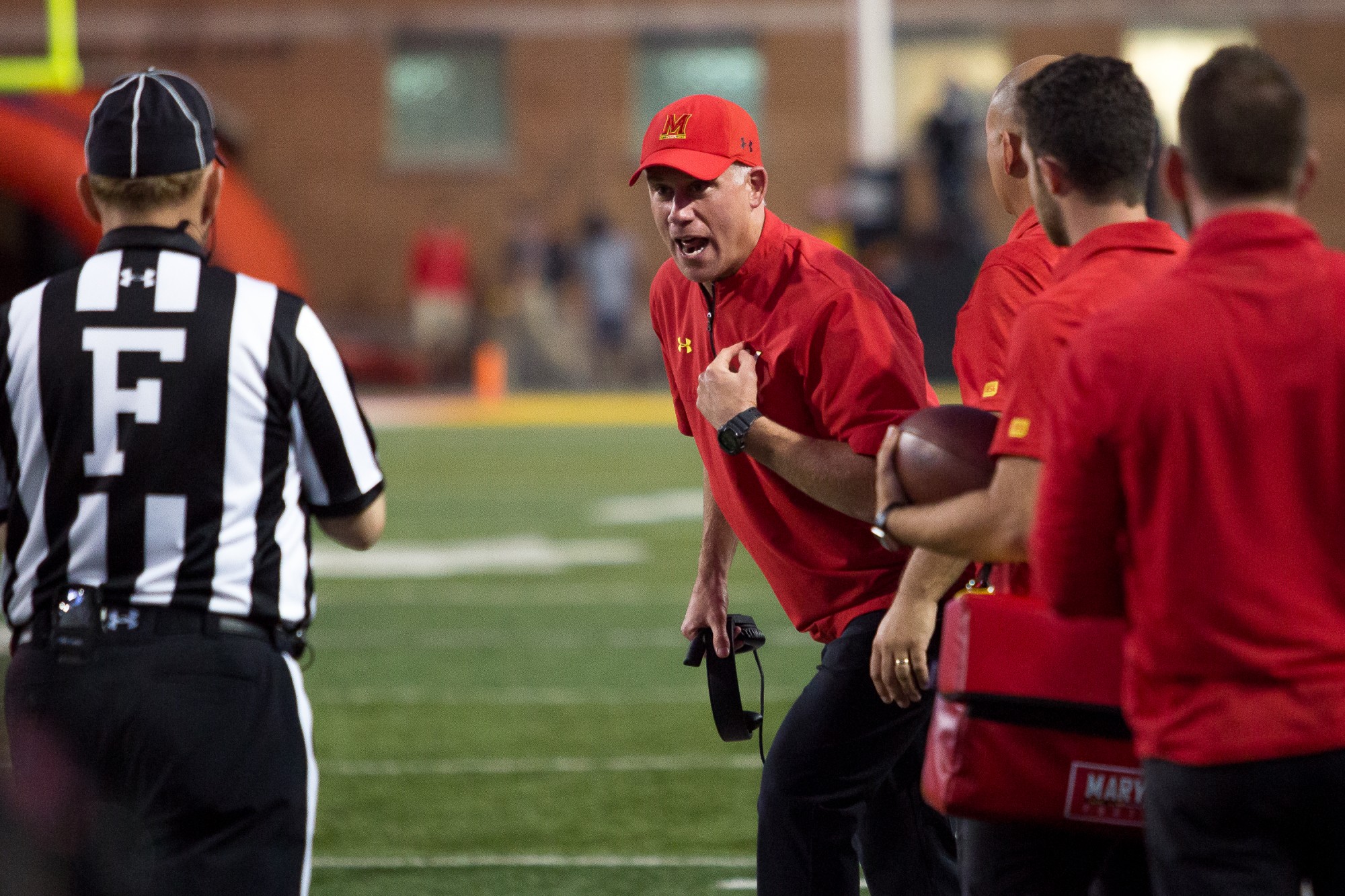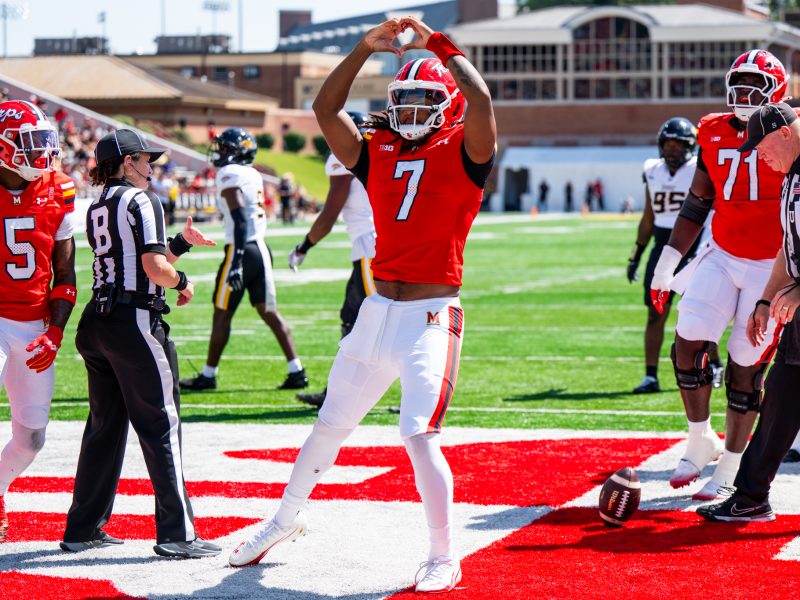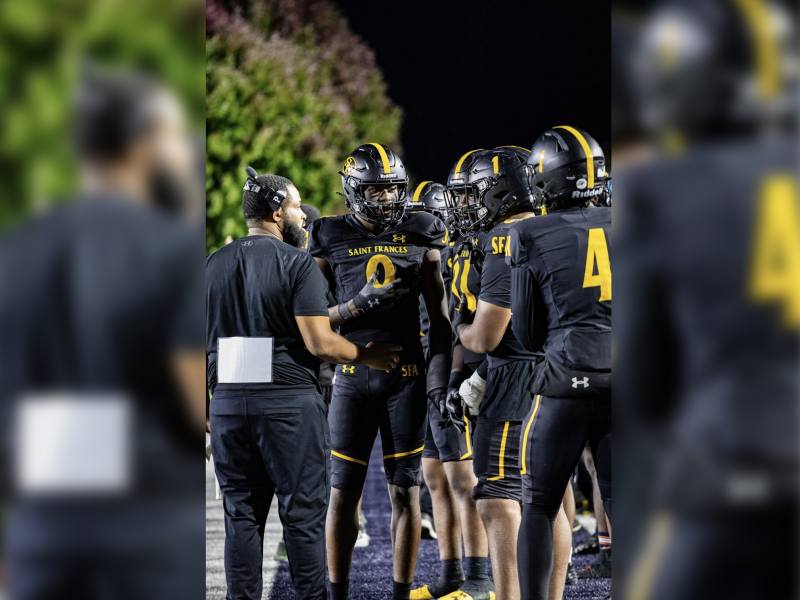Entering Saturday’s showdown with Northwestern, the Maryland football team responded to each of its setbacks with conviction.
After losing starting quarterback Tyrrell Pigrome to an ACL tear at Texas, the Terps held on to defeat the Longhorns before crushing Towson with their highest point total since 1954. Then, when second-string quarterback Kasim Hill suffered the same injury as Pigrome — leading to a blowout defeat against Central Florida — Maryland bounced back with a road win over Minnesota.
Following the squad’s 62-14 loss at Ohio State on Oct. 7, coach DJ Durkin anticipated a positive performance against the Wildcats. Instead, he witnessed a 37-21 letdown that cast doubt over the Terps’ chance at a bowl game appearance.
Durkin delivered a terse opening postgame statement that lasted 35 words.
“We didn’t take advantage of field position enough times,” Durkin said. “There were definitely some good individual performances, but we’ll have to go back and look at the tape and take a look at it. Any questions?”
[Read more: Maryland football’s running game needs to reappear before its bowl hopes vanish]
Durkin’s frustration perhaps stemmed from a repeat of the issues that plagued Maryland in Columbus, such as a faulty rushing attack, inconsistent passing game and inability to finish drives. Even more concerning, though, was the Terps’ continued defensive problems.
Northwestern had its way on offense, throwing for 293 yards and rushing for 238. The Wildcats went 10-for-21 on third down and 3-for-4 on fourth down.
Aside from two interceptions from quarterback Clayton Thorson — both the result of careless overthrows — the Terps hardly unsettled the Wildcats. They recorded one sack and no quarterback hits.
“We’ve got to win a matchup or get pressure with a four-man rush,” Durkin said. “They were running crossing routes and rubbing guys off of [coverage] in man. In zone, they were doing a good job finding the holes.”
The lack of defensive pressure made it difficult for Maryland’s offense, guided by its third-string quarterback, to keep up. Despite three touchdown passes from Max Bortenschlager, the offense lagged behind Northwestern’s explosive attack and was outscored, 34-14, over the final three quarters.
Northwestern came into the game expecting a quick start from Maryland, given its tendency to rebound from bad losses, but the Wildcats also felt confident they could break down the Terps’ lackluster defense, which has now allowed more than 30 points in four of its six outings.
“We knew we were going to have to weather Maryland’s storm,” Northwestern coach Pat Fitzgerald said. “In that first 10 minutes there was going to be a push from them and we saw that. … Then I think we just started clicking.”
[Read more: Maryland football’s 37-21 loss to Northwestern diminishes bowl hopes]
Like at Ohio State, Maryland’s offense didn’t turn takeaways into points on Saturday, punting after interceptions from safety Darnell Savage and cornerback JC Jackson.
Bortenschlager completed less than half of his passes, while running backs Ty Johnson and Lorenzo Harrison rushed for a combined 51 yards.
But while offensive coordinator Walt Bell’s unit struggled to capitalize on good field position, the defense shouldered the responsibility of giving up 531 total yards to a group that came in with a losing record.
“When we’re on the field, we’re expected to make a stop,” linebacker Jermaine Carter said. “We didn’t do a very good job tackling today. That led to big plays. … We just have to be better.”



